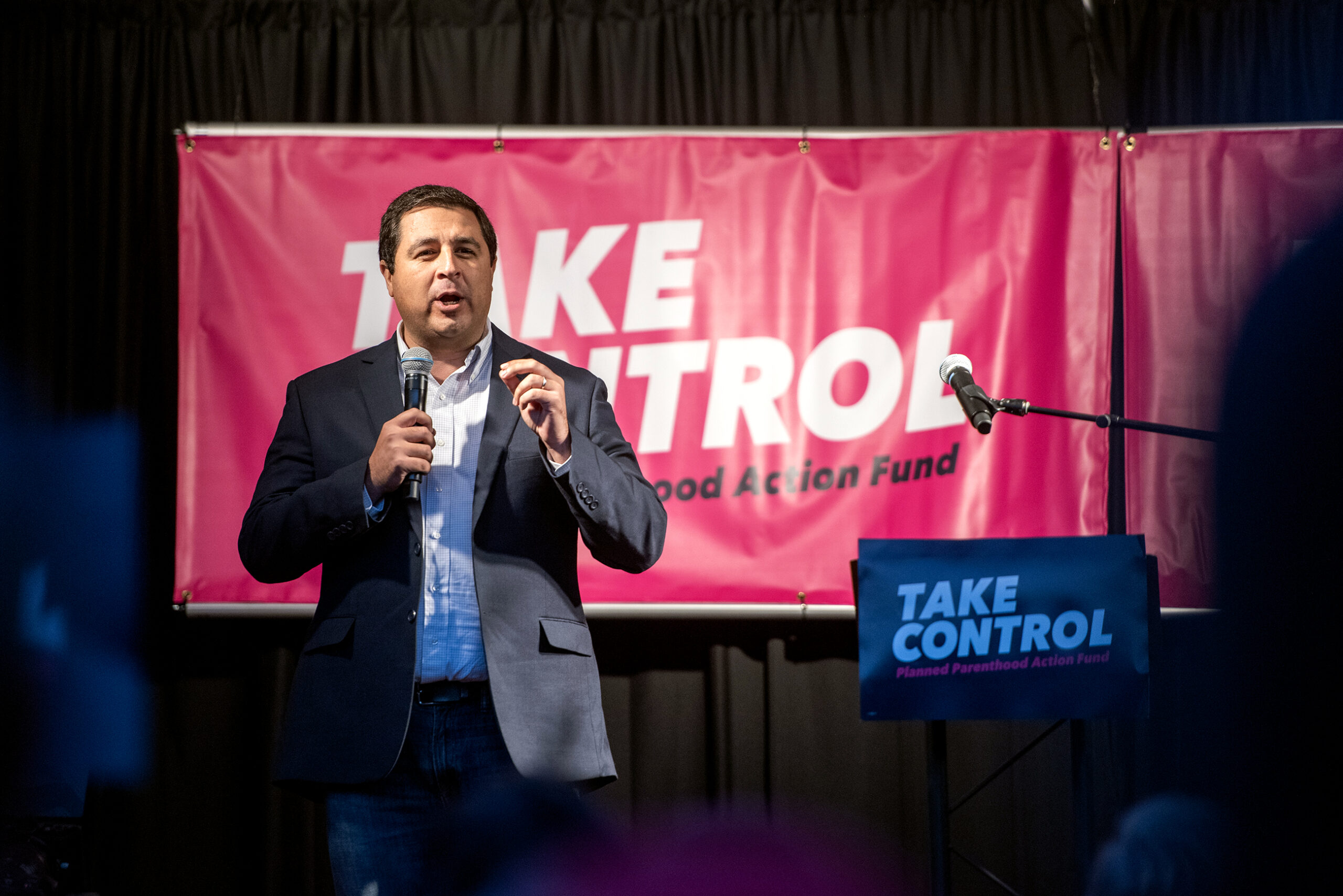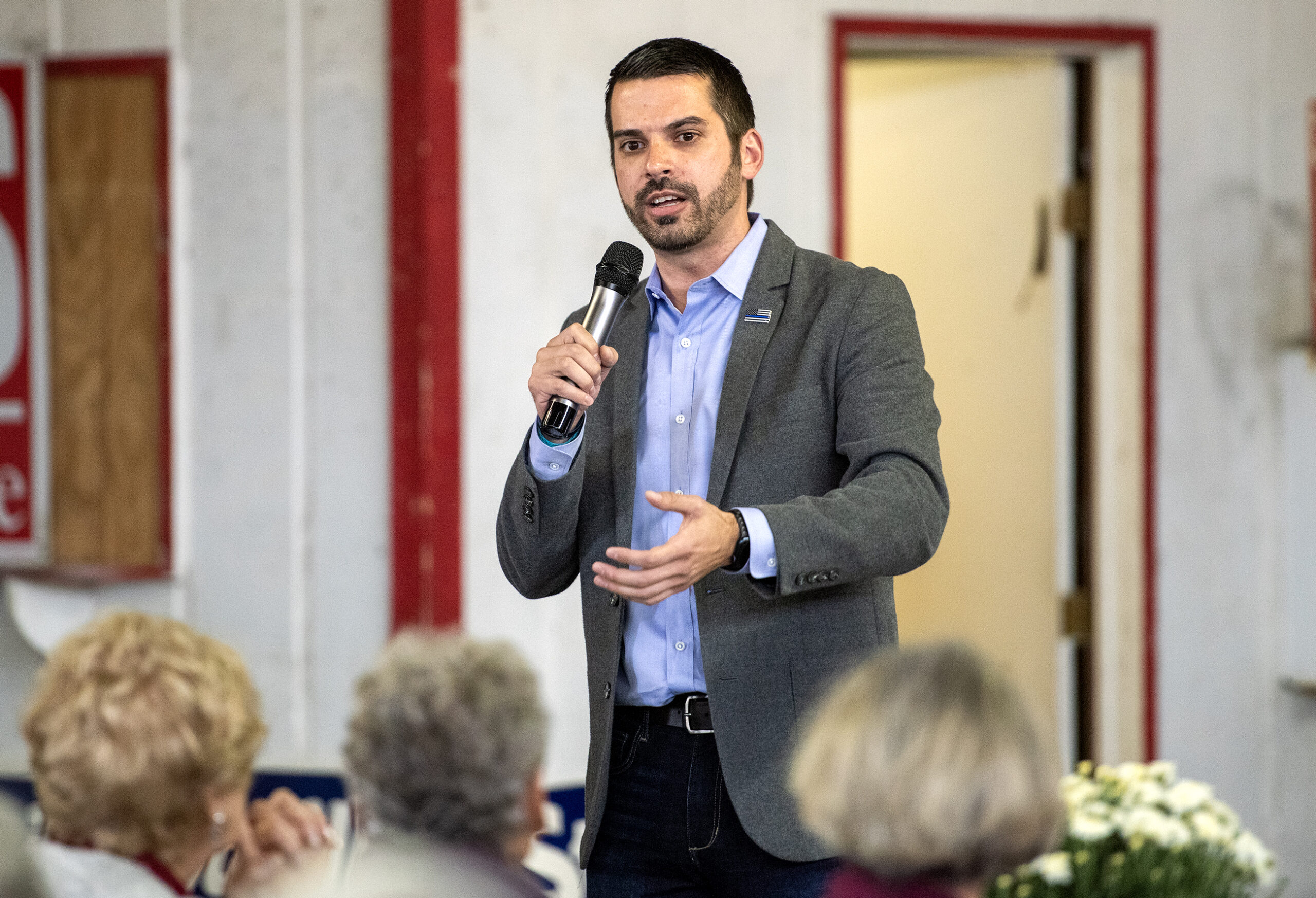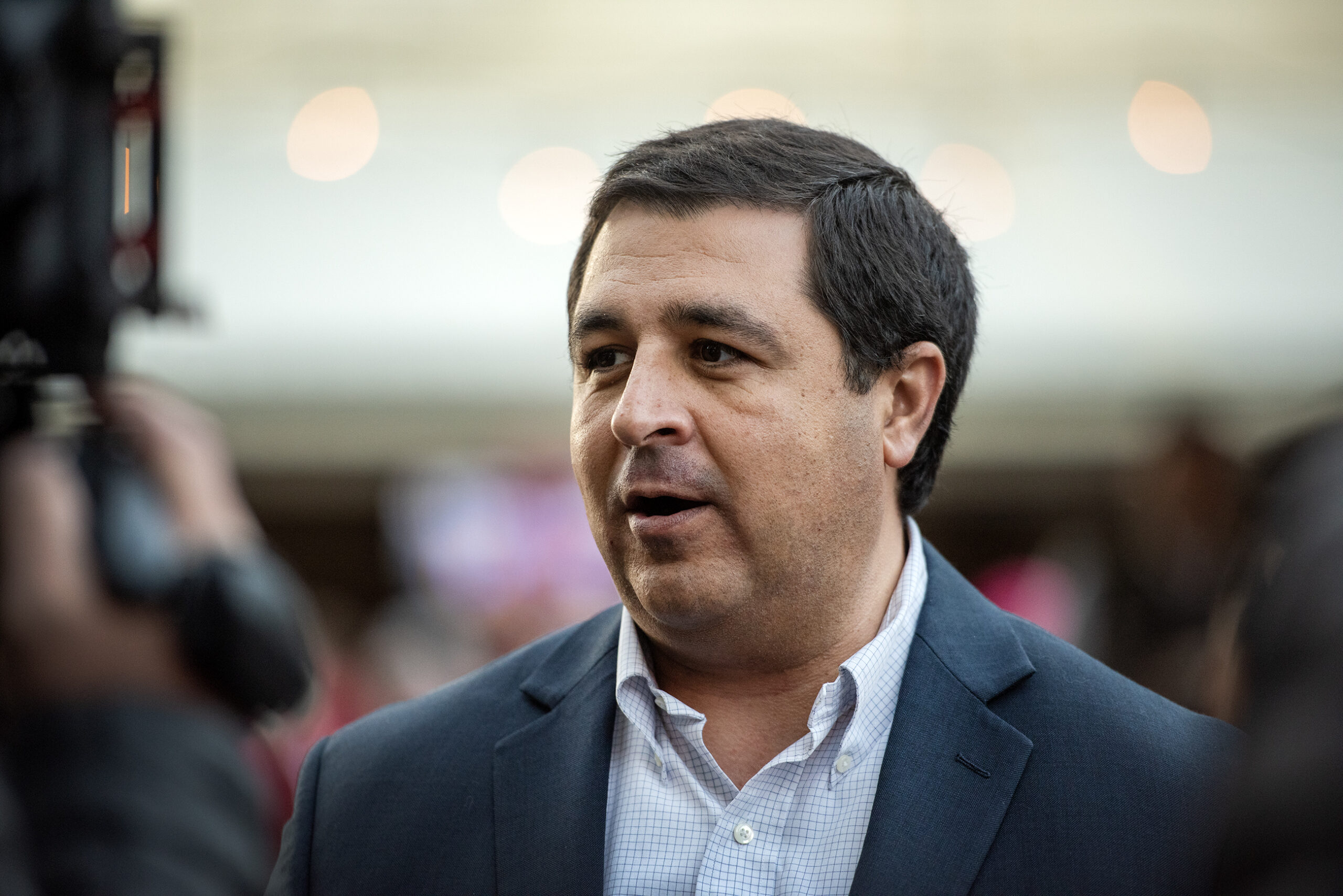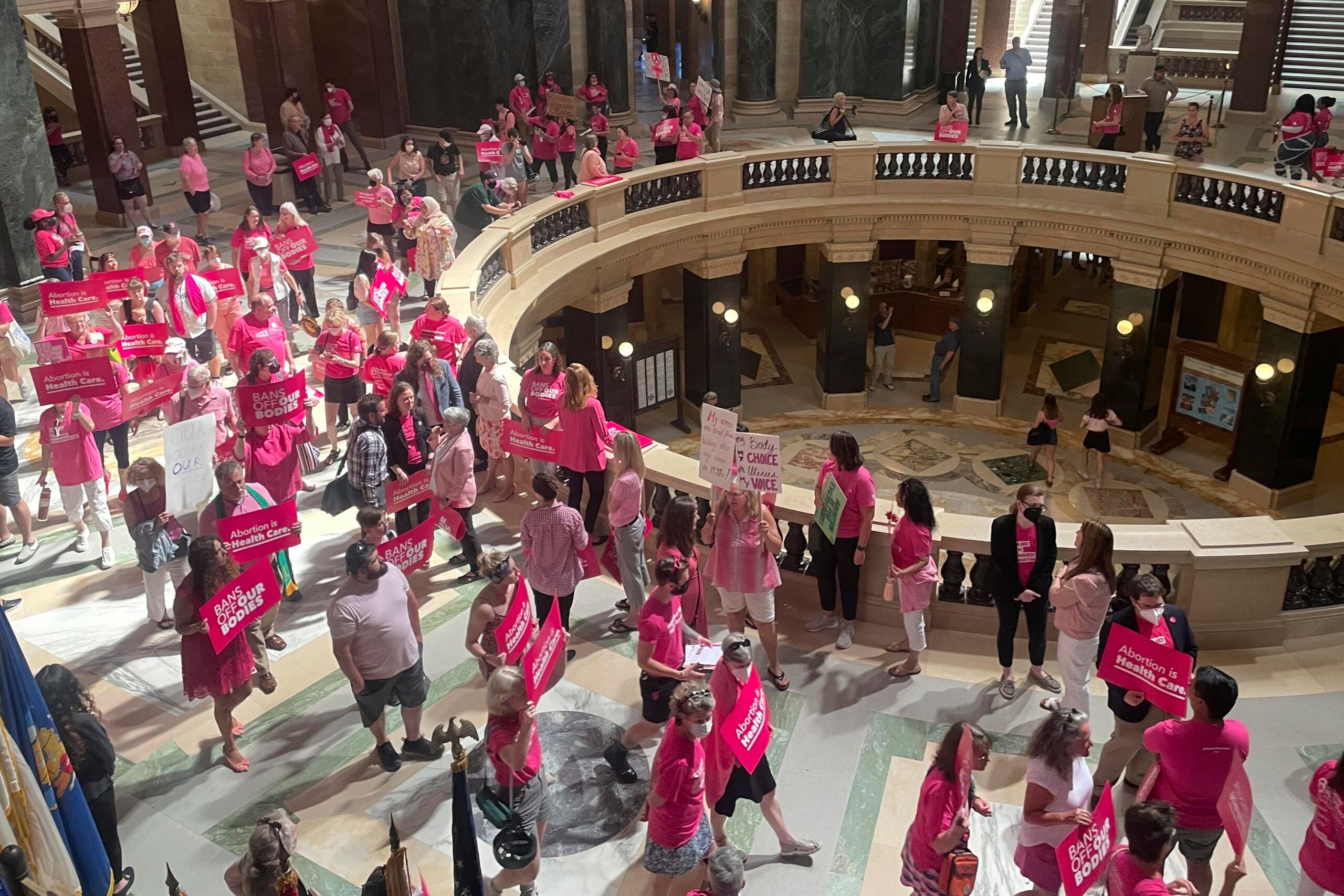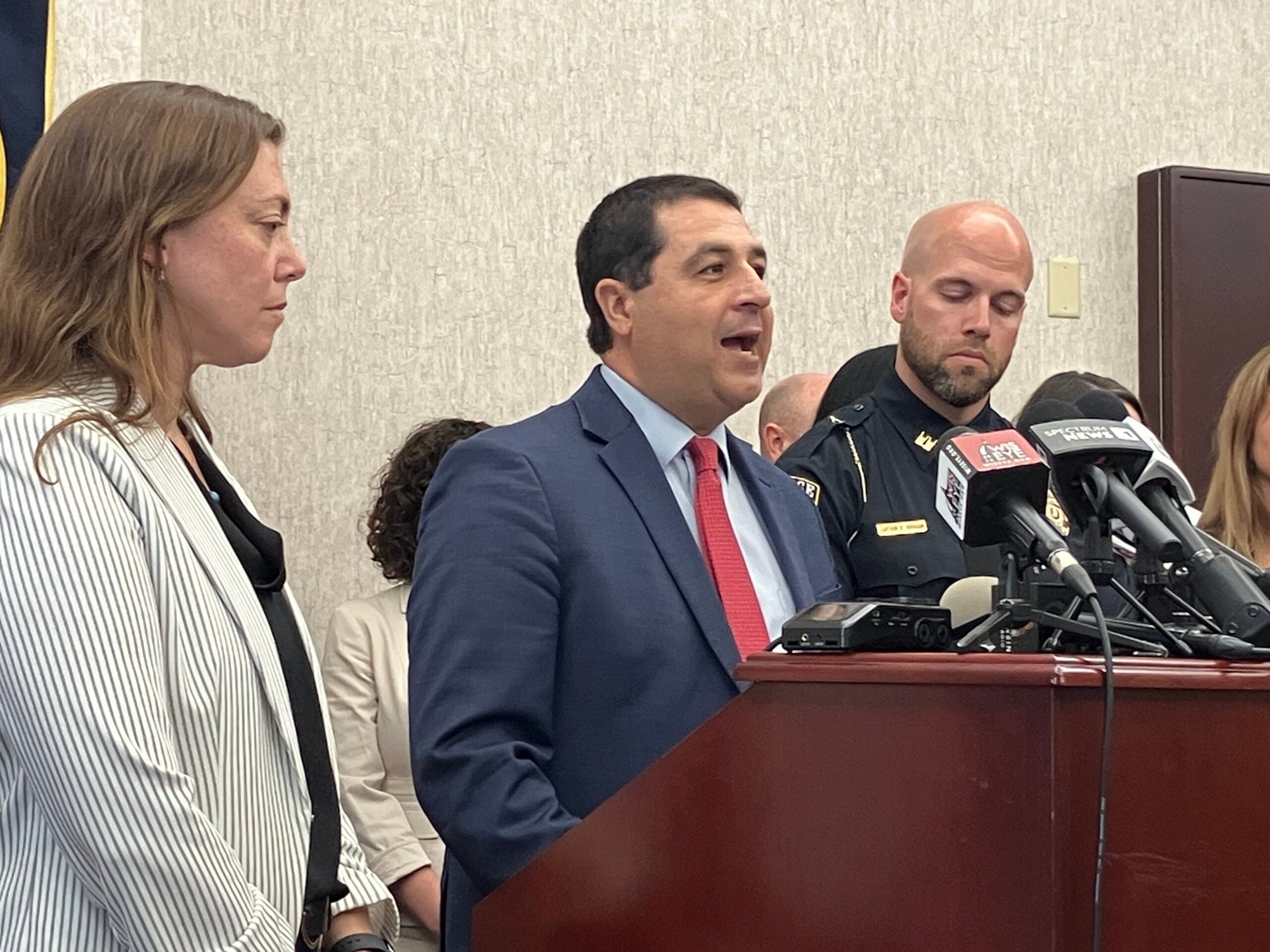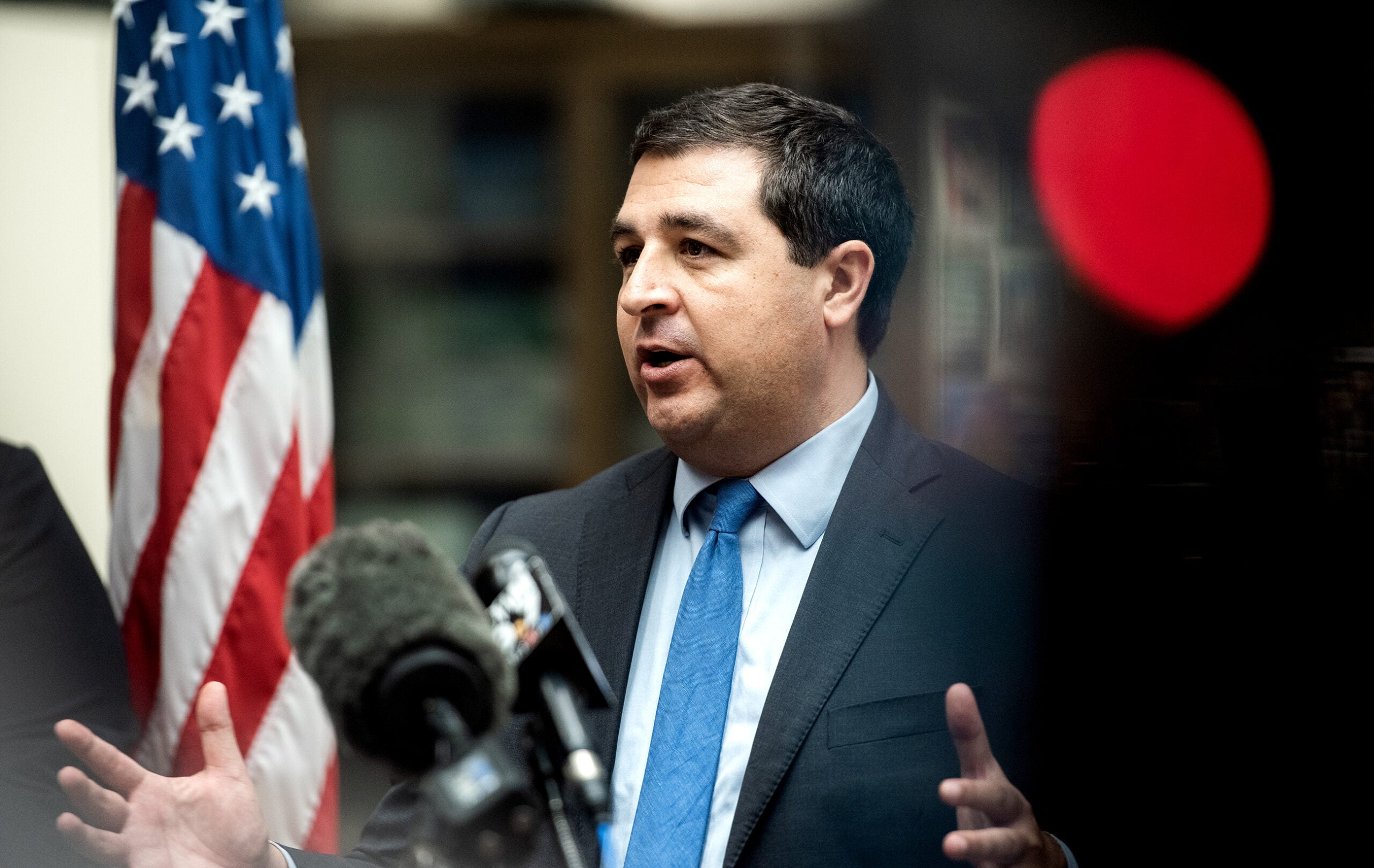Attorney General Josh Kaul says state law enforcement authorities should focus their resources on crimes such as homicide and sexual assault rather than the state’s abortion ban.
The Democrat made the comments this week while appearing on Wisconsin Public Radio’s “Central Time” to discuss his campaign for a second term. Kaul is being challenged in Tuesday’s election by Republican Fond du Lac District Attorney Eric Toney.
Wisconsin’s attorney general oversees the state Department of Justice and its roughly $150 million annual budget. Among other functions, the department provides legal advice to other state agencies, assists local authorities in criminal cases, provides victim services and operates the state crime labs.
News with a little more humanity
WPR’s “Wisconsin Today” newsletter keeps you connected to the state you love without feeling overwhelmed. No paywall. No agenda. No corporate filter.
During the “Central Time” interview, Kaul said his stance against enforcing the state’s 173-year-old abortion ban is a “huge differentiator” in the race. He said public safety in Wisconsin has been underfunded for decades and voters should trust his plan to turn that around. Kaul also said he has plans to address violent crime and PFAS contamination.
The following interview was edited for brevity and clarity.
Rob Ferrett: Why did you sue over Wisconsin’s 1849 ban on almost all abortions?
Josh Kaul: So, four days after Roe v. Wade was overturned, I filed suit seeking to block enforcement of Wisconsin’s 19th century abortion ban. I’ve also been clear that we’re not going to divert resources from investigating and prosecuting the most serious crimes in the state to going after people for abortions.
That is a huge differentiator in the AG’s race. My opponent has repeatedly pledged to enforce that ban. He won’t rule out enforcement in cases involving rape or incest, and he has even suggested that we empower DA’s to prosecute abortion cases across county lines. That is wrong. It’s backwards. And it shouldn’t be the way we move forward in Wisconsin.
RF: Even if you don’t make it your top priority, wouldn’t you have to coordinate with authorities to enforce the existing law?
JK: Any prosecuting or investigating agency has limited resources, and we make judgments all the time about how to use those resources most effectively. We at DOJ in particular have the statutory authority to investigate crimes of statewide importance. That’s what the statutes say. We investigate homicide, sex offenses, drug trafficking cases, and we put people who committed serious crimes behind bars.
It will never be the case that it is an effective use of our resources to divert resources from those other purposes to go after people for abortions under this 19th century ban.
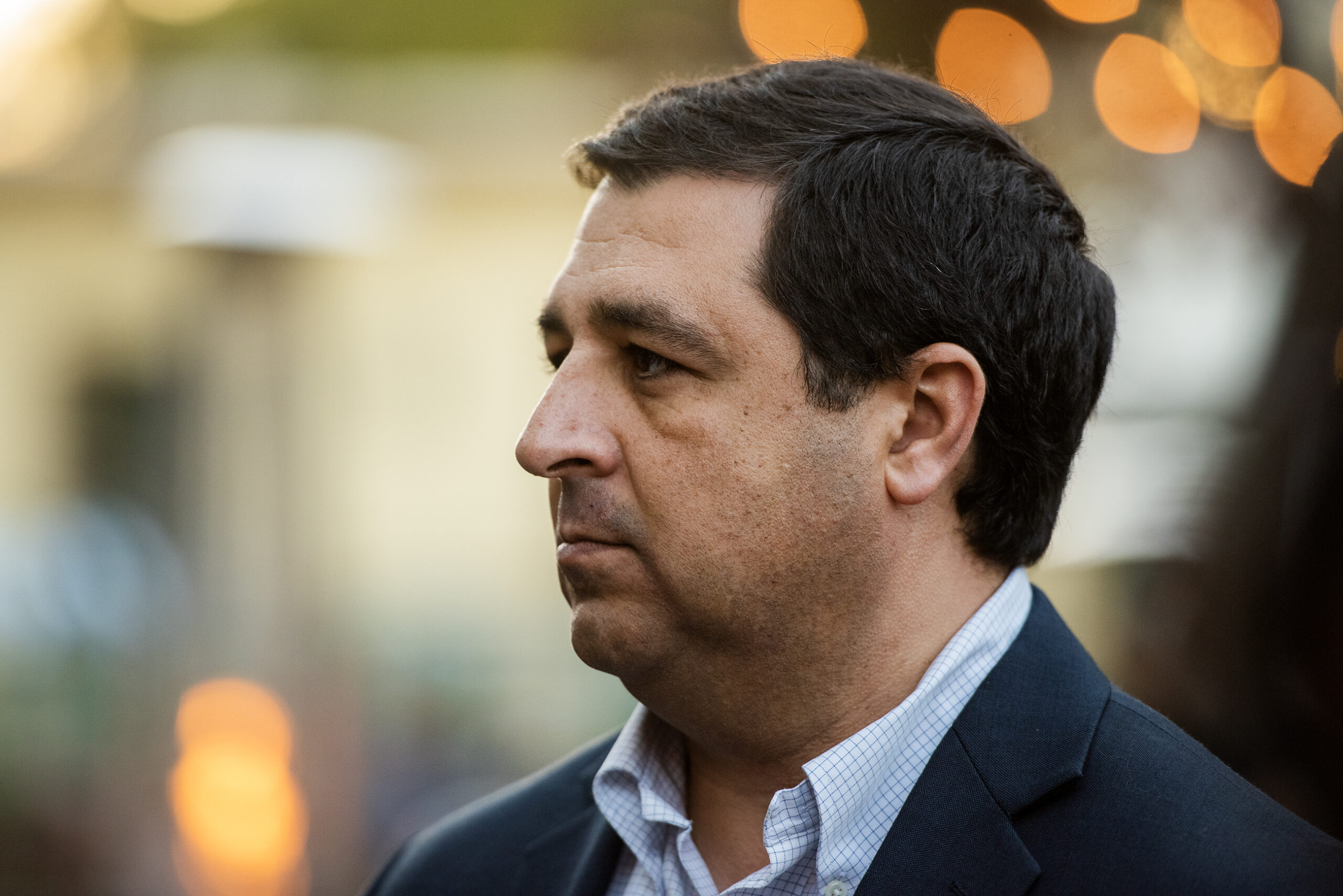
RF: What steps are you taking to reduce violent crime?
JK: I’m a former federal prosecutor. I prosecuted murderers, gang members and drug traffickers in one of the most violent cities in the country (Baltimore). As AG, I oversee a Department of Justice that investigates and prosecute some of the most serious crimes. We need to continue to have an AG who has that kind of experience.
We have also got to invest in public safety in Wisconsin. Our public safety has been underfunded for decades now. Shared revenue, which is one of the sources of money that local governments use to fund local law enforcement and other critical services, has declined while costs have gone up. So, a year ago, I proposed a “Safer Wisconsin” plan, which would invest $115 million into public safety through community policing, violence prevention efforts, law enforcement recruitment, retention of wellness programs, victim services and other steps. We need to have solutions for funding public safety. I’ve proposed them. My opponent hasn’t.
We also need some commonsense gun safety measures like universal background checks. It’s not OK to have a system where people can sell guns out of the trunk of their car without having background checks conducted. But my opponent has not supported those kinds of measures.
We also need to strengthen our bail system so that if people are a danger to the community, they don’t get a certain amount of bail that they can potentially make and get out if they’re a drug kingpin or wealthy. Instead, they should simply be detained pending trial if they’re a danger to the community.
RF: How would you go about making those changes with what could likely remain a GOP-controlled state Legislature?
JK: We’re going to keep advocating for those kind of investments. I put out my “Safer Wisconsin” plan a year ago, and the Legislature unfortunately hasn’t taken action. But voters are going to send a message at the polls. One of the things that is going to be clear is that Wisconsinites want those kinds of investments in safer communities.
We worked during my first term in office to get things passed that make our communities safer. We reformed our sexual assault kit laws. Ultimately, the Legislature passed that. They created about 70 additional assistant district attorney positions around the state. They invested in law enforcement training. Those are all things that I advocated for as AG.
We’re going to keep advocating for investment. We have a record-breaking surplus and investing a portion of that into safer communities, given the challenges that communities across Wisconsin (and) across the country are facing in the wake of the pandemic, is a wise investment. It’s one that I’m going to be advocating for the Legislature to make.
RF: What are you hoping to accomplish with your lawsuit against companies that manufacture the so-called “forever chemicals,” such as PFAS?
JK: I was in Marinette in late 2019, and I heard from people who didn’t feel comfortable giving their kids the water from the tap, who were worried about the health consequences that people they went to high school with had suffered and whether that was because of PFAS contamination.
So, the principle I take to this first is if our laws are violated, polluters need to be held accountable. We need to make sure we are getting these toxic chemicals out of our water. And it’s the companies that made millions of dollars in profits that should be paying for that, not taxpayers of Wisconsin.
Wisconsin Public Radio, © Copyright 2025, Board of Regents of the University of Wisconsin System and Wisconsin Educational Communications Board.

